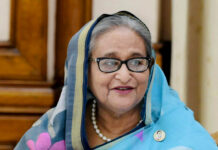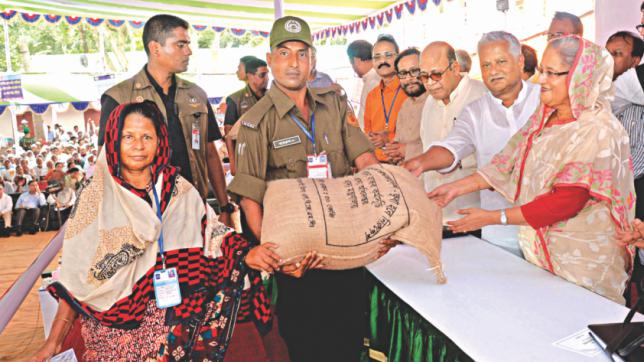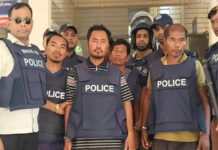The political relationship is the most important and the two countries will sit together and sort out their differences in this regard
Bangladesh and the US will try to reduce their political gap in the third partnership dialogue to be held in Washington.
“We will be holding the third dialogue in the third week of October,” Foreign Secretary Md Shahidul Haque told the Dhaka Tribune.
Bangladesh and the US enjoy a love and hate relationship as Washington praises Dhaka as a moderate, secular and pluralistic society and calls it an increasingly important trading partner and destination for US investment.
On the other hand, Washington has remained concerned about the state of democracy and human rights violations in Bangladesh and termed the parliamentary elections of January 5 as undeniably flawed.
The US has said that Bangladesh’s main political parties urgently need to engage in constructive dialogue that leads to a more representative government.
“We have shared views and at the same time differences of opinions,” said an official of the Bangladesh foreign ministry.
The political relationship is the most important and the two countries will sit together and sort out their differences in this regard, he said.
Foreign Minister AH Mahmood Ali and US Secretary of State John Kerry had an opportunity to meet each other at a reception at the ASEAN ministerial meeting in Myanmar Saturday where they briefly discussed issues of mutual interest, he added.
“This short meeting will have an impact on the next partnership dialogue,” the official said.
The foreign secretary will have talks with his counterpart, Wendy Sherman, the under secretary for political affairs.
The countries held the third security dialogue in Dhaka in April where they discussed cooperation in the security area.
“The decisions taken at the security dialogue will be placed in the partnership dialogue for review,” the official said.
Anti-terrorism, natural disasters, climate change, defence cooperation, arms purchases and other security issues were discussed in the security dialogue.
Meanwhile, US Ambassador-designate Marcia Stephens Bloom Bernicat, at a hearing before the Senate Foreign Relations committee in July said: “The strong US-Bangladesh relationship allows us to discuss our differences, when they occur, in a spirit of candour and openness.”
She expressed grave concerns about the January 5 elections, the confrontational political situation, political violence, attacks on religious and ethnic minorities, and extra-judicial killings committed by security forces.
“I will work hard to support efforts to promote accountability and strengthen human rights and democracy in Bangladesh,” she said.
Bangladesh is a focus country for three of the President Barack Obama’s key development efforts – Global Health, Global Climate Change, and Feed the Future, she added.
About Bangladesh’s commitment to holding trials of war criminals, she said: “The United States supports bringing to justice those who committed atrocities in the 1971 war, but those trials should be fair and transparent, and in accordance with international standards.”
Source: Dhaka Tribune









